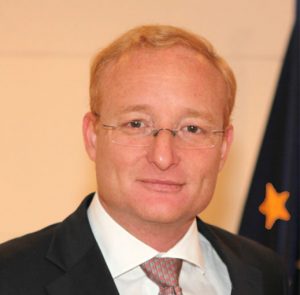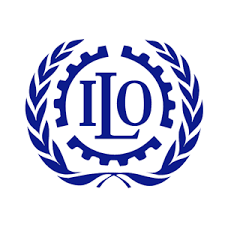The European Patent Office and representatives of 14 German law firms who had expressed concerns about EPO patent quality earlier this year in a letter, have started a “constructive dialogue”.
The representatives had a meeting with the new President of the European Patent Office, António Campinos, and other EPO officials, on 16 October 2018 in Munich. According to a press release issued last week by the law firms, “the officials of the European Patent Office listened to the experiences, opinions and fears of patent attorneys and lawyers and expressed their willingness to talk. There is agreement that the EPO has delivered very high quality internationally in the past and that it is up to all stakeholders to preserve it. At the end of the meeting, the European Patent Office promised to continue the constructive dialogue that has now begun. It will be about the definition of quality criteria, as well as the possibilities to investigate criticism and to remove causes of criticism.”
 The meeting was the result of a letter (see also this blogpost) which was sent to the EPO management, including its former president Benoit Battistelli and incumbent president Campinos on 7 June 2018 by four major German law firms from Munich (Grünecker, Hoffmann Eitle, Maiwald, Vossius & Partner), and re-sent on 6 August with the signature of another ten law firms (Lederer & Keller, Bardehle Pagenberg, Kather Augenstein, Reitstötter Kinzebach, Kirkpatrick, Wallinger Ricker Schlotter Tostmann, Schwarz Baldus Patentanwälte, Grand IP Group, Dr. Ursula Kinkeldey, Cohausz & Florack).
The meeting was the result of a letter (see also this blogpost) which was sent to the EPO management, including its former president Benoit Battistelli and incumbent president Campinos on 7 June 2018 by four major German law firms from Munich (Grünecker, Hoffmann Eitle, Maiwald, Vossius & Partner), and re-sent on 6 August with the signature of another ten law firms (Lederer & Keller, Bardehle Pagenberg, Kather Augenstein, Reitstötter Kinzebach, Kirkpatrick, Wallinger Ricker Schlotter Tostmann, Schwarz Baldus Patentanwälte, Grand IP Group, Dr. Ursula Kinkeldey, Cohausz & Florack).
In the letter, the law firms expressed “great concern” about developments at the EPO: “The incentive systems and internal directives appear to be increasingly directed towards rewarding or even requesting rapid ‘termination’ of proceedings and a correspondingly higher productivity. This has resulted in penalization of detailed and thorough assessment of cases.” The firms said they feared that patent quality was in danger and pointed out that “if the users of the European system gain the impression that granted EP patents cannot be relied upon anymore due to insufficient search and examination, the users may increasingly be discouraged from filing European patents. This might unhinge the entire patent system.”
According to the press release about the meeting of 16 October, the European Patent Office has now launched a “constructive dialogue” with the law firms, which “are committed to ensuring reliable patent protection for inventors and businesses.” A representative who was present said that, apart from the point of the EPO budget surplus, the concerns of the law firms as set out in letter were discussed in detail. It is as yet not clear in what way the dialogue will take shape, as no concrete steps were announced. (The full press release (in German) can be found below this article).
Central Staff Committee
As this blog reported earlier, the presidency of António Campinos, who took over on 1 July 2018, has led to cautious optimism that something will be done about the legacy of social and quality problems, left behind by his controversial predecessor Benoit Battistelli. Campinos “has had and still has very many meetings with EPO staff and genuinely listens”, one observer said.
In October, for the first time in years, Campinos had a short meeting with the Central Staff Committee (CSC), in which “the President allowed open and frank discussions”, although “concerns we raised were noted but did not, however, lead to concrete changes”, according to a CSC report. Campinos did agree to discuss issues related to the transfer of funds to the pension scheme and salary savings plan next year in more depth. In recent a meeting of the EPO’s Budget and Finance Committee (BFC), he also made clear that “he considers that the overall real production target, estimated as about 430.000 products in 2018, would be reduced to about 400.000 in 2019”, according to the CSC report, which described the BFC meeting as “a transitional one, building on the legacy of the previous Administration, in waiting for the definition of new strategic orientations by Mr Campinos.”
ILOAT
The new EPO president also met with leaders of the ILO and its Administrative Tribunal ILOAT to discuss the large number of cases currently at the ILOAT that originate from the EPO. Last year the ILOAT warned in an exceptional document that “the difficulties caused by the number of complaints which are filed by officials against the European Patent Organisation (EPO) (…) threaten the ability of the Administrative Tribunal of the ILO to serve all other organizations”. Almost all these complaints concern conflicts of staff members with the EPO, originating from the Batistelli era.
 I an email last month to EPO staff, Campions wrote he told the ILO that the EPO’s internal procedures for conflict resolution have since been improved: “I have recently signed and implemented a Memorandum of Understanding with the Chair of the Appeals Committee. That is partly a result of your direct input in recent one-to-one meetings with staff. Many of you spoke positively in our meetings about the increased independence and impartiality of the Appeals Committee, and, as a result, greater faith in the system. This MoU has therefore now formally safeguarded that independence and impartiality. Importantly, it also recognises the need to allocate adequate resources to ensure proper functioning of the Appeals Committee and its Secretariat. The second point that I discussed with ILO leaders is the recent increased effort in social dialogue and I hope many of you will agree this is developing positively (…).” In his mail, Campinos encourages EPO staff members with pending cases before the ILOAT “to consider reaching an amicable settlement with the Office”.
I an email last month to EPO staff, Campions wrote he told the ILO that the EPO’s internal procedures for conflict resolution have since been improved: “I have recently signed and implemented a Memorandum of Understanding with the Chair of the Appeals Committee. That is partly a result of your direct input in recent one-to-one meetings with staff. Many of you spoke positively in our meetings about the increased independence and impartiality of the Appeals Committee, and, as a result, greater faith in the system. This MoU has therefore now formally safeguarded that independence and impartiality. Importantly, it also recognises the need to allocate adequate resources to ensure proper functioning of the Appeals Committee and its Secretariat. The second point that I discussed with ILO leaders is the recent increased effort in social dialogue and I hope many of you will agree this is developing positively (…).” In his mail, Campinos encourages EPO staff members with pending cases before the ILOAT “to consider reaching an amicable settlement with the Office”.
In the meantime, there has been some action in the case of Patrick Corcoran, according to various sources. The Irish judge was thrown out of the EPO building in Munich late 2014 on suspicion of having distributed defamatory material about the EPO upper management. After various illegal and fruitless attempts of former president Battistelli to have him fired, he was acquitted last year by the ILOAT and the Landgericht München, but was subsequently told that his future at the EPO would no longer be in Munich as an appeal board member, but in The Hague as an examiner (see also this blogpost). Apparently, the prospect of a forced transfer was the last straw after years of hardship: Corcoran fell gravely ill. The sources told Kluwer IP Law that his transfer has now been reversed or put on hold.
It remains to be seen if an “amicable settlement” is possible for some former SUEPO leaders. The case of Laurent Prunier, for instance, has been brought to Campinos’ attention several times, but is still pending before the ILOAT. Another former SUEPO leader, Elizabeth Hardon, has been waiting for months now for the next step of the EPO in her unfinished ILOAT case. In a document that was spread among EPO staff members in Munich today, the Central Staff Committee declared urgent action was needed and amnesty in these two cases would be the fairest way to go and would serve social peace and justice.
——————————————
Pressemitteilung
Offener Brief führt zu Dialog
Präsident des Europäischen Patentamtes und Patentanwälte an einem Tisch
Europäisches Patentamt startet konstruktiven Dialog mit Patentanwälten und Rechtsanwälten. Kanzleien setzen sich dafür ein, einen zuverlässigen Patentschutz für Erfinder und Unternehmen sicherzustellen.
München, 8. November 2018: Am 16. Oktober haben sich Vertreter von 12 Kanzleien aus ganz Deutschland zu einer konstruktiven Diskussion mit dem neuen Präsidenten des Europäischen Patentamtes, António Campinos, und einer von ihm angeführten Delegation getroffen.
Die Verantwortlichen des Europäischen Patentamts hatten ein offenes Ohr für die Erfahrungen, Meinungen und Befürchtungen der Patentanwälte und Rechtsanwälte und zeigten sich gesprächsbereit. Es besteht Einigkeit, dass das EPA im internationalen Vergleich in der Vergangenheit sehr hohe Qualität geliefert hat und dass es allen Beteiligten darum geht, diese zu erhalten.
Am Ende der Zusammenkunft hat das Europäische Patentamt in Aussicht gestellt, den nun begonnenen konstruktiven Dialog weiterzuführen. Dabei wird es um die Definition von Qualitätskriterien gehen, sowie um die Möglichkeiten Kritikpunkte zu untersuchen und Ursachen von Kritik zu beheben.
________________________
To make sure you do not miss out on regular updates from the Kluwer Patent Blog, please subscribe here.



“Campinos encourages EPO staff members with pending cases before the ILOAT “to consider reaching an amicable settlement with the Office”.
If you were Patrick Corcoran and the ILOAT would have not yet rendered its judgement, would you “consider reaching an amicable settlement with the Office”?